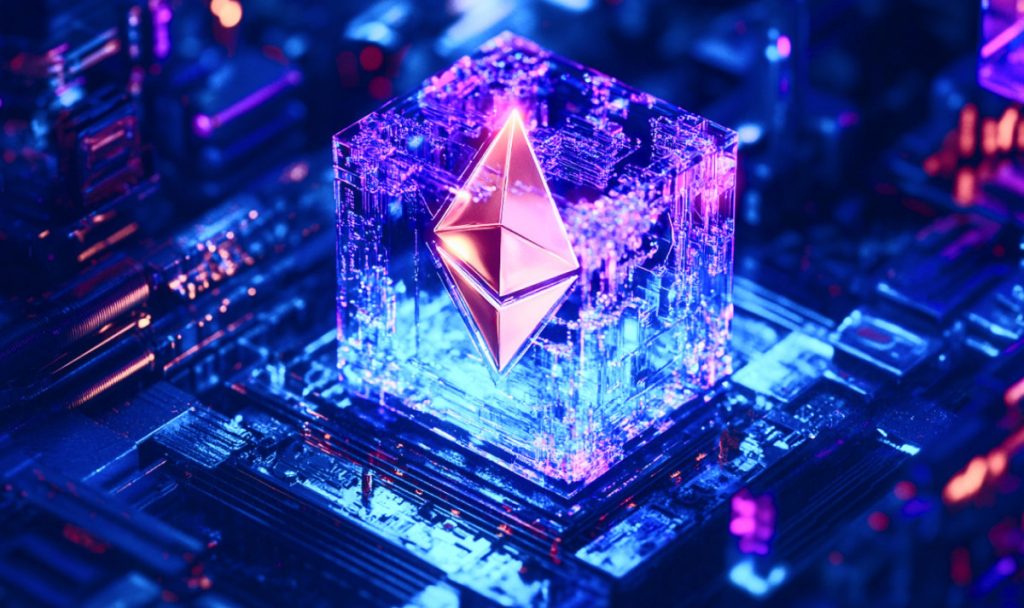Infura’s Decentralized Infrastructure Network Debuts As EigenLayer AVS


In Brief
Infura to launch its Decentralized Infrastructure Network as an EigenLayer AVS, marking an advancement in Web3 connectivity and accessibility across blockchain networks.

Web3 infrastructure provider Infura announced its plans to launch its Decentralized Infrastructure Network (DIN) as an EigenLayer AVS, marking an advancement in Web3 connectivity and access across multiple blockchain networks.
EigenLayer is a protocol built on Ethereum that aims to improve the crypto-economic security of applications by utilizing AVSs. These AVSs encompass systems that require tailored validation processes, such as sidechains, data availability layers, and new types of virtual machines.
An EigenLayer AVS refers to any blockchain system that utilizes EigenLayer’s restaking mechanism to implement distinct validation methods within the Ethereum network. These systems can quickly scale by leveraging the security provided by Ethereum’s validators.
DIN is a decentralized Web3 API marketplace designed to enhance the accessibility, reliability, and efficiency of Web3, offering developers a new way to connect with Ethereum and other blockchains. In 2024, new networks decentralized by DIN will include Blast Layer 2, Mantle, Starknet, ZKsync, BNB Smart Chain (BSC), opBNB, and Scroll, providing developers with expanded opportunities to build and scale applications with substantial infrastructure support.
By launching DIN as an AVS through EigenLayer, Web3 builders and operators can leverage the security of staked ETH and the collaborative features of EigenLayer to run a wide range of services. This integration of restaking and infrastructure support will help expand DIN’s decentralized offerings, strengthening the Ethereum ecosystem.
In less than a year since its initial federated launch, over 40 of the 50 providers in DIN have been tested, with more than a quarter actively serving traffic. This progress highlights DIN’s evolution towards full decentralization, transforming it into a permissionless marketplace and service discovery layer for Web3, enabling the launch of new services across various Web3 gateways.
Why DIN Is Important?
The collaborative and competitive dynamics among DIN Providers help reduce development costs and enhance access to decentralized Web3 gateways. By adopting a decentralized approach, developers gain better connectivity to emerging blockchain networks at a lower cost while benefiting from increased reliability. DIN enables Web3 gateway providers to both compete and cooperate, creating a win-win situation for all, including users.
DIN providers work together on crucial elements like router and node infrastructure kits, as well as payment systems, to scale decentralized RPC solutions for developers. At the same time, DIN offers a valuable solution for emerging blockchain networks seeking to scale effectively.
Disclaimer
In line with the Trust Project guidelines, please note that the information provided on this page is not intended to be and should not be interpreted as legal, tax, investment, financial, or any other form of advice. It is important to only invest what you can afford to lose and to seek independent financial advice if you have any doubts. For further information, we suggest referring to the terms and conditions as well as the help and support pages provided by the issuer or advertiser. MetaversePost is committed to accurate, unbiased reporting, but market conditions are subject to change without notice.
About The Author
Alisa, a dedicated journalist at the MPost, specializes in cryptocurrency, zero-knowledge proofs, investments, and the expansive realm of Web3. With a keen eye for emerging trends and technologies, she delivers comprehensive coverage to inform and engage readers in the ever-evolving landscape of digital finance.
More articles

Alisa, a dedicated journalist at the MPost, specializes in cryptocurrency, zero-knowledge proofs, investments, and the expansive realm of Web3. With a keen eye for emerging trends and technologies, she delivers comprehensive coverage to inform and engage readers in the ever-evolving landscape of digital finance.



















































